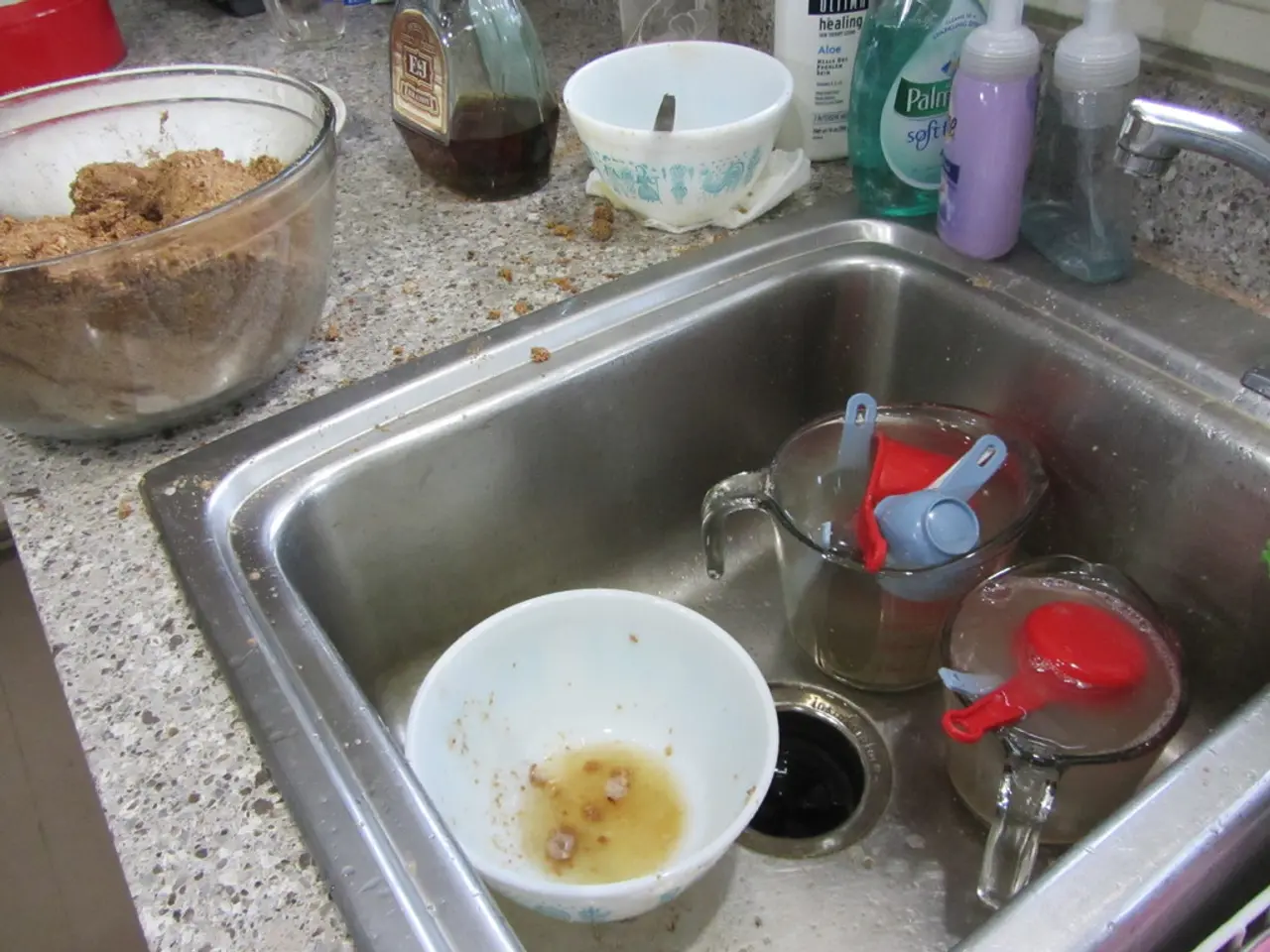Despite the cholera outbreak among Sudanese refugees, they are left with only lemons to serve as their medication.
In the western region of Sudan, the refugee camps of Tawila are currently grappling with a rapid spread of cholera. As of early August 2025, the outbreak has resulted in approximately 2,957 suspected cases and at least 20 deaths reported locally, with the wider Darfur region experiencing more cases and deaths.
Cholera, a highly contagious bacterial infection that causes severe diarrhea, has been spreading through contaminated water and food. The first cases in Tawila were detected in early June in the village of Tabit. Since then, the outbreak has worsened, with reported cases rising through July 2025 while cases in other Sudanese states declined.
Médecins Sans Frontières (MSF), which manages most cholera treatment in Tawila, has been working tirelessly to contain the disease. They have treated over 2,300 patients by the end of July and reported overwhelmed facilities with up to 400 patients in a 130-bed hospital. MSF estimates the number of cholera cases in Tawila could reach up to 28,000 at the peak of the outbreak, suggesting underreporting and ongoing spread.
Efforts to combat the disease include medical treatment, vaccination plans, water, sanitation, and hygiene (WASH) support, and funding needs. MSF and the Ministry of Health run cholera treatment centers, including a 160-bed facility in Tawila, though overcrowding is severe. UNICEF intends to deliver more than 1.4 million doses of oral cholera vaccine across affected areas. Provision of soap, latrine slabs, and plastic sheeting is underway to improve sanitation, although access challenges due to conflict remain severe. UNICEF reports an urgent need for $30.6 million to fund its cholera emergency response in Sudan.
The outbreak is exacerbated by conflict-related factors such as displacement of 380,000 people to Tawila, damaged health infrastructure, limited access to clean water, and overcrowded camps. These conditions create ideal circumstances for cholera transmission and complicate response efforts.
The situation is particularly critical for the 640,000 children under the age of five in North Darfur, who are at risk of cholera. The rainy season, which peaks this month, may bring floodwaters that further contaminate water supplies and worsen the cholera crisis.
It is important to note that cholera can kill within hours if left untreated, but is preventable and usually treatable with oral rehydration solutions and antibiotics. Despite the challenges, international agencies are mobilizing for treatment, vaccination, and WASH interventions amid severe logistical challenges.
References:
[1] UNICEF. (2025). Cholera Outbreak in Sudan. Retrieved from https://www.unicef.org/sudan/cholera-outbreak-sudan
[2] MSF. (2025). Cholera Outbreak in Sudan. Retrieved from https://www.msf.org/sudan/cholera-outbreak-sudan
[3] WHO. (2025). Cholera Outbreak in Sudan. Retrieved from https://www.who.int/emergencies/current/sudan-cholera/en/
[4] Sudanese Ministry of Health. (2025). Cholera Outbreak in Sudan. Retrieved from https://www.moh.gov.sd/en/cholera-outbreak-sudan/
- The news of the cholera outbreak in Tawila, Sudan, has echoed across the world.
- The rapidly spreading cholera in Tawila has raised concerns about the health and wellness of the region.
- Artists around the globe are using their platforms to raise awareness about the cholera crisis in Sudan.
- The World Health Organization (WHO) has advised on the importance of clean water and good hygiene practices to prevent cholera.
- Efforts to combat cholera are not limited to Sudan; several countries have announced donations and aid for the ongoing crisis.
- The manufacturing industry is working to produce more oral rehydration solutions to combat cholera in affected areas.
- Mental health professionals have started providing therapies and treatments to help those traumatized by the cholera outbreak in Tawila.
- The United Nations is urging for more funding to address chronic diseases like cholera, especially in vulnerable regions like East Africa.
- Researchers in environmental science are studying the impact of climate change on the spread of cholera in Sudan.
- The retail sector is responding to the cholera crisis by donating supplies and resources to aid organizations working in Sudan.
- Public transit systems in major cities are launching campaigns to educate passengers about the importance of hand hygiene and water safety.
- Entrepreneurs are developing innovative solutions for clean water access and storage to help combat cholera in Tawila.
- The banking and insurance industries have provided financial support to aid organizations responding to the cholera crisis in Sudan.
- Nutritionists are promoting food safety practices to help prevent the spread of cholera and other infectious diseases.
- As people age, their immune systems become weaker, making them more susceptible to diseases like cholera.
- Women's health organizations are focusing on the specific needs of pregnant women and new mothers in Tawila during the cholera outbreak.
- Parenting groups are sharing resources on cholera prevention and treatment tactics for families affected by the crisis.
- Weight management experts are advising on the importance of maintaining a healthy diet and hydration during the cholera outbreak.
- Cardiovascular health is essential for the body's ability to withstand diseases like cholera and recover from dehydration caused by severe diarrhea.
- The housing market is being affected by the influx of displaced people seeking shelter in Tawila during the cholera crisis.
- Venture capital investors are looking for innovative startups focused on healthcare, clean water, and other solutions for the cholera outbreak.
- The aerospace industry is also contributing to the response effort, with drones being used to deliver supplies to remote areas in Sudan.
- In Mens Health, it's crucial to maintain a strong immune system to protect against infectious diseases like cholera.
- Skin care brands are creating a line of products designed to provide relief and hydration for those suffering from skin conditions caused by cholera.
- Cannabidiol (CBD) products are being researched for their potential in easing stress and promoting sleep during the cholera crisis.
- Neurological disorders can weaken a person's immune system, making them more susceptible to cholera and other infectious diseases.
- In the Automotive industry, companies are collaborating to provide vehicles for transporting patients and supplies during the cholera outbreak.
- Small businesses are playing a crucial role in providing essential goods and services to those affected by the cholera crisis in Sudan.
- Finance experts are advising on effective ways to invest in health and wellness initiatives aimed at preventing and addressing cholera and other diseases.
- The energy sector is focusing on providing sustainable solutions for clean water and electricity in Tawila and other affected areas.
- In the Space and Astronomy field, scientists are researching ways to monitor and predict the impact of climate change on water supplies and infectious diseases like cholera.








